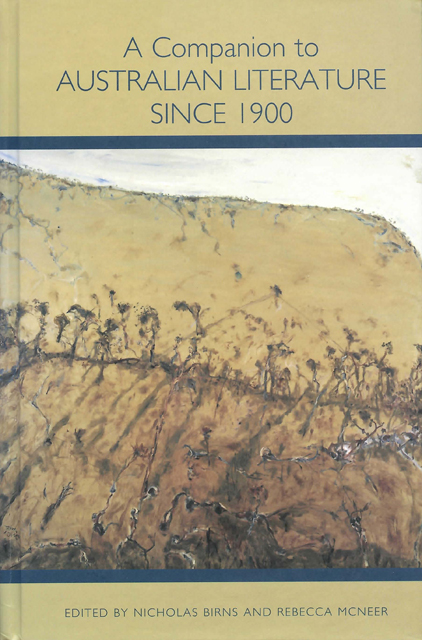Book contents
- Frontmatter
- Dedication
- Contents
- Chronology of Main Events in Australian History, 1901–2005
- Acknowledgments
- Note on the Cover Illustration and Artist
- Introduction
- Part 1 Identities
- Part 2 Writing Across Time
- Part 3 International Reputations
- Part 4 Writers and Regions
- Part 5 Beyond the Canon
- Notes on the Contributors
- Index
12 - Australian Drama, 1900–1970
Published online by Cambridge University Press: 10 March 2023
- Frontmatter
- Dedication
- Contents
- Chronology of Main Events in Australian History, 1901–2005
- Acknowledgments
- Note on the Cover Illustration and Artist
- Introduction
- Part 1 Identities
- Part 2 Writing Across Time
- Part 3 International Reputations
- Part 4 Writers and Regions
- Part 5 Beyond the Canon
- Notes on the Contributors
- Index
Summary
The History of Australian drama between 1900 and 1970 is often presented as a series of isolated renaissances. This type of framing usually acknowledges Louis Esson’s work with the Pioneer Players in the 1920s and Ray Lawler’s Summer of the Seventeenth Doll (1955) in the 1950s as isolated incidents in a largely empty landscape. This picture places the beginning of a real Australian voice on Australian stages as coinciding with the beginning of systematic government subsidy to the performing arts in the late 1960s and early 1970s. This confusion between the history of subsidized theater and the history of Australian drama hides a rich and varied field, including the foundations of a range of traditions within Australian drama. In contrast with the dominant view, Australian drama texts written through the period 1900 to 1970, like the myths that present this period as a barren landscape, reflect particular social and political moments.
There are a number of reasons for the selective recognition of Australian drama and the denial or apparent invisibility of a large number of texts. One important reason is that theater in the Australian imagination has been heavily loaded with expectations that it will construct and give voice to the nation as a reflection, affirmation, and formative event of a national identity. Within the competing forces from the dominant settler society of cultural cringe and triumphal nationalism, this national identity has been constructed as a singular voice. In many ways Australian drama has fulfilled the demand to voice the national identity. However this identity is not a singular voice but many different voices exploring Australian preoccupations, identities and struggles. Australian drama through the years 1900 to 1970 examines, critiques, and voices dominant and competing relationships with the landscape, attitudes, and relationships between settlers and Indigenous Australian people, issues of identity and nationalism, relationships with migrants, and issues of class and gender.
Implicit in many Australian drama texts is the question of who is and who is not Australian. Who or what type of person has sovereignty of the land and therefore the nation? In the first decades of the twentieth century the nationalist enterprise that dominated the 1890s continued after the Federation of the Australian states in 1901.
- Type
- Chapter
- Information
- A Companion to Australian Literature since 1900 , pp. 207 - 218Publisher: Boydell & BrewerPrint publication year: 2010

